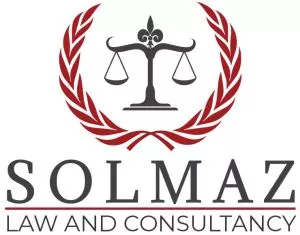- within Corporate/Commercial Law topic(s)
- with readers working within the Transport industries
One of the conditions that necessitate being placed under guardianship and thus being protected is "minority," and the other is "restriction."
Minority: Minors remain under the custody of their parents until they reach the age of majority (18 years) or are deemed adults through marriage or a court decision. Thus, minors generally do not need to be placed under guardianship for their protection. However, in cases such as the death of both parents, being declared legally missing, or the removal of parental custody rights, the minor is left without legal guardians. In such cases, a guardian is appointed by the guardianship authority to protect the minor. The guardian manages the minor's personal affairs and assets and represents them legally.
When a minor is not under custody, they must be placed under guardianship. The purpose is to appoint a guardian through the family court (civil court of peace). This ensures minors without parents or legal guardians receive proper care. If the parents are divorced or living separately and custody cannot be exercised, guardianship is invoked.
Restriction: Restriction (legal incapacitation) involves partially limiting the legal capacity of an adult due to reasons stipulated in the law, in order to ensure their protection. That is, adults who cannot safeguard their interests for specific legal reasons are placed under restriction and assigned a guardian or, if applicable, placed under the custody of their parents.
Restriction limits a fully capable person's legal ability, making them partially incapable, but not entirely incapable. Total incapacity stems from a lack of discernment (mental capacity). If someone lacks this ability, they are already fully incapable before any restriction decision. Restriction, in such cases, brings that person under the provisions of guardianship law.
An individual subject to a restriction order is referred to as a restricted person.
Grounds for Restriction
The Civil Code strictly enumerates the grounds for restriction:
Mental Illness or Deficiency: Any adult who is unable to manage their affairs, needs ongoing care for safety, or poses a danger to others due to mental illness or deficiency can be restricted. Only one of these conditions is required. Medical expert reports usually support such decisions.
Prodigality, Alcohol or Drug Addiction, Immoral Lifestyle, Poor Asset Management: Article 406 of the Civil Code groups these under one provision. Adults who, due to these conditions, risk bringing themselves or their family into poverty and are in continuous need of care or pose a threat to others can be restricted.
- Prodigality: Spending recklessly without benefit.
- Alcohol Addiction: Chronic, compulsive drinking behavior.
- Drug Addiction: Compulsive use of substances like heroin, cocaine, etc.
- Immoral Lifestyle: Persistent behavior contrary to public morality and societal norms.
- Poor Management: Inability or neglect in managing one's property due to lack of capacity or interest.
Imprisonment: According to Article 407 of the Civil Code, adults sentenced to one year or more of imprisonment are also subject to restriction.
Voluntary Restriction: Article 408 allows an adult to request guardianship for themselves due to:
- Old age
- Physical or mental disability
- Inexperience
- Chronic illness
Conditions for voluntary restriction include:
- Being 18 or older
- Having discernment (mental capacity)
- Providing evidence (medical reports, expert opinions, witness statements)
Termination of Restriction
Yes, restriction based on voluntary request can be lifted. If:
- The underlying reasons no longer exist,
- The person can manage their affairs,
- Their health has improved,
they may request the civil court to terminate the restriction. The court will assess and decide accordingly.
Guardianship and restriction are legal measures designed to protect individuals unable to safeguard their own rights. These court-ordered protections uphold both individual welfare and public order, in line with the principle of the social state.
The content of this article is intended to provide a general guide to the subject matter. Specialist advice should be sought about your specific circumstances.


